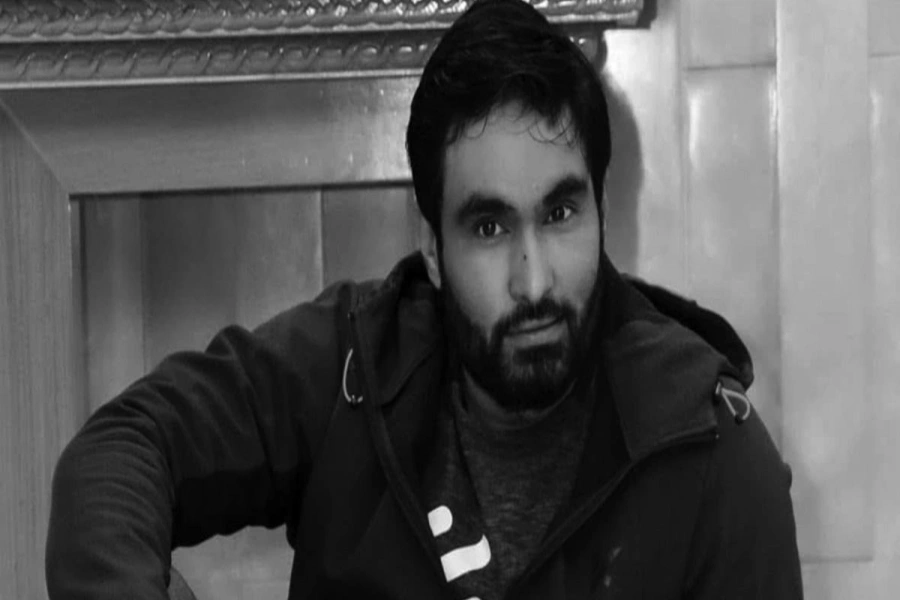Piercing is a part of body modification, and piercing the ears and nose is not uncommon in our society. It has been in practice in a variety of forms throughout history. In recent years, along with tattooing, piercing different parts of the body other than the earlobes and nose has become more common with services to do so being available in Kathmandu.[break]
These developments are good news for the industry as it has taken its momentum in the city. However, at the same time, piercing and tattoo parlors need to take great care in the planning and preparation, registration and regulations, maintenance and protection of clients, in order to ensure safe and well-executed treatments.
In Kathmandu, especially in Thamel, one can see several piercing and tattoo parlors. But no one knows how much such parlors earn without paying taxes, how common infections are transmitted in the largely unregulated industry, and what vulnerability it has created among youngsters.
In reality, lawmakers themselves are unaware of this growing scenario. The state is ignorant of the consequences of unregulated body piercing and tattooing market when regulations of body piercing are becoming important issues due to its accessibility in recent years. And in Nepal, we lack proper laws on body piercing and regulations of this profession.

It is fine if body piercing is done at a medical centre or performed by proper trainers. But more often than not, today’s youngsters get body piercing and tattoos at parlors and salons where there are no legal codes and licensing for body piercing and professional training, sterilization of instruments and other proper facilities. There are no punishments for tattoo artists for negligence in piercing or tattooing on minors without the consent of their parents. Therefore, a number of laws can be set for the regulation of body piercing and tattooing businesses in Nepal.
Anyone who opens a tattoo parlor should be required to register the business with the authority concerned. Doing such a business without official registration is illegal.
Piercing and tattooing is very sensitive as it may have adverse effects on a person’s health and body. Parlors should be required to comply with health and safety laws addressed by the Labor Act. They should be required to maintain the place free of dirt, dust and congestion. Proper hygienic disposal of swabs, dressings, and chemicals used in the process should be a priority. The business must ensure that their clients, employees and public should be protected from exposure to blood and products exposed to blood because they may contain blood-borne viruses.
Since piercing is a contract between two parties, their capability is fundamental. As girls and boys under the age of 16 years cannot legally give consent to intimate sexual contact under any circumstances, so can also piercing of nipples and genitalia for both boys and girls be regarded as assault and offence. Thus, such piercing should be avoided, and parlors should always ask for proof of age before further procedures.
In the UK, for instance, the Prohibition of Female Circumcision Act 1985 states that female genital mutilation – cutting, piercing or otherwise surgically modifying the genitalia – for non-medical reason is illegal. In Nepal, though an increasing number of girls are having themselves pierced, the law is silent.
Further, the one who carries this business must be provided with sufficient information regarding the consequences of piercing or tattooing. Doctors are required to provide information regarding the side effects to patients, as stated by the recent landmark judgment made by the Supreme Court of Nepal.
Tattoo operators should train their employees so they can carry out their jobs safely. In addition, any equipment used in the procedures must be safe and fit for the purpose. Suppliers of the equipment must also make sure that their machineries meet the essential health and safety requirements, and that the equipments are accompanied by manuals for safe use and maintenance.
Nepal’s legal courts have not been asked to rule that tattoo parlors are commercial enterprises. If this sector is not regularized in time, and if tattoo parlors don’t ask the government to do so, courts could classify the business as violent and harmful. Tattoo artists and perforators could henceforth run the risk of being accused of inflicting body harms.
The writer is an advocate. He can be reached at sarojghimire@hotmail.com.
Buddhakrishna piercing his tongue for the seventh time





































